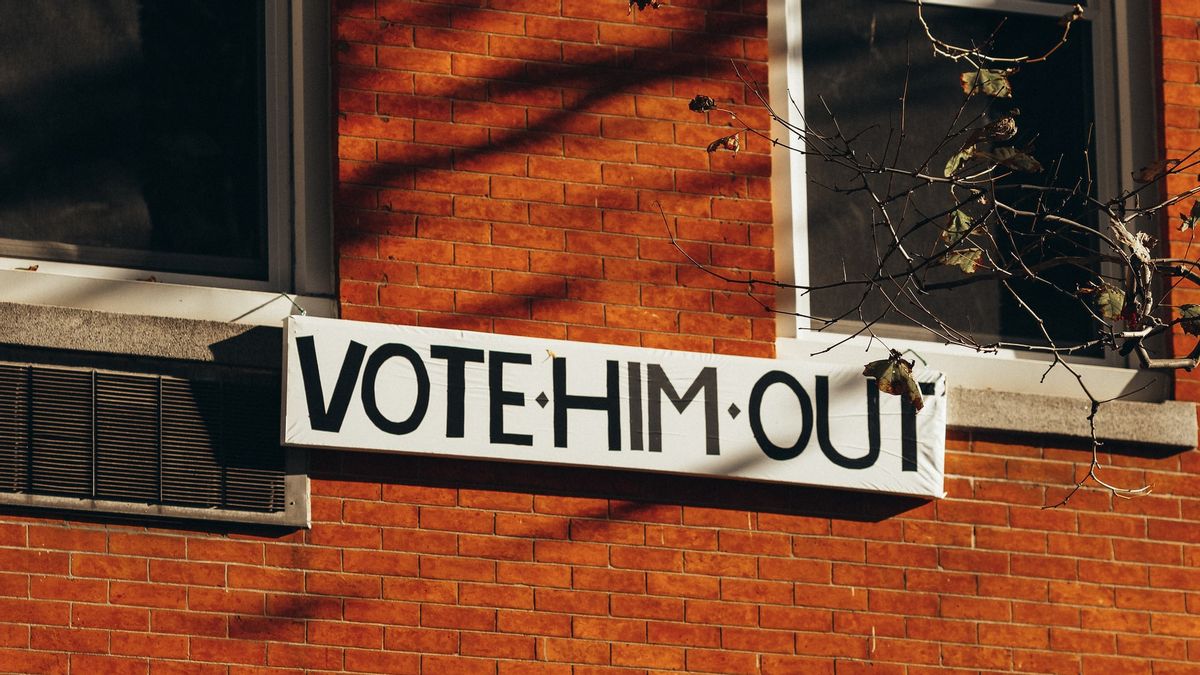JAKARTA - In government politics, we often hear the term electoral. Electoral in a democracy can be defined as general elections (elections) which are followed by all levels of society to elect representatives in parliament or head of government.
Definition of electoral politicsAn expert, Miriam Budiardjo, argues that politics is an attempt to achieve a better community life. In line with this, Peter Merkl also explained that politics in its best form is an effort to achieve a good and just social order.
Meanwhile, electoral or general elections are part of the political system. Thus, electoral politics can be interpreted as a means or way to determine the people who will represent the people in the government system.
GJ Wolhoff defined election by starting from the concept of democracy. Democracy is understood as people's government. Government for the people, and by the people completely.
History of electoral politicsOne of the reasons for this electoral political system is that Americans live in a large area and will certainly lack sufficient information to conduct direct and intelligent elections for presidential candidates.
In the 1780s, when life was much more local, these considerations became relevant. However, the early emergence of the national presidential party made this consideration obsolete by linking presidential candidates to local candidate lists and national platforms, which reveal what candidates stand for to voters.
Although the Philadelphia Formators did not anticipate the presence of a national presidential party system, after the 1800-1801 elections, the 12th Amendment — proposed in 1803 and ratified a year later — was framed with the party system. In that election, two rudimentary presidential parties — Federalists led by John Adams and Republicans led by Thomas Jefferson — began to form and fight.
Indeed Jefferson won in the end, but only after a prolonged crisis caused by some disruption to the formulator's election engine. In particular, Republican voters do not have a formal system or method to establish Jefferson as president and Aaron Burr as vice president.
Only then did some politicians try to take advantage of the confusion. When entering the 12th amendment, each party has the opportunity to appoint one separate presidential and vice presidential candidate.
The modified amendments to the electoral process changed the formulation framework. And allow future presidential elections to be a populist and partisan affair that shows two rival pairs. This system is still in effect today.
The negative impact of democratic electoralism todayElectoral democracy or what is often referred to as a democratic party in the general election of council members, from the regions to the center, and also in the presidential and vice presidential elections presents an interesting phenomenon to be studied.
This phenomenon shows that there is considerable attention, in the form of mobilizing moral and material energy from the public and elites who have a direct interest in this election. And this gives rise to a term known as "electoralism".
The term electoralism is used to describe a condition and practice of democracy which is dominated by electoral affairs and sacrifices socio-cultural values for the sake of win-lose in elections.
This symptom was expressed by Vedi R Hadiz (2005) in the Post-Suharto Dynamics of Indonesian Political Power (Jakarta; LP3ES) that today there are new features that have emerged in Indonesian politics after Suharto stepped down.
Electoralism is becoming much more important, as are political parties, the MPR and DPR / DPRD as an arena for political competition. These new features are becoming an extraordinary phenomenon in Indonesia today.
Even long after the first democratic presidential election in 1999 which focused on democracy by prioritizing periodic elections and the fulfillment of citizens' political rights.
Elections have become a complex phenomenon among the lower classes because political games and hatred are spread, planned, directed and managed in such a way through social media and technology networks that move so fast that they go viral.
Example of electoral politicsWhen Americans go to the polling stations, they basically choose a group of officials who will occupy the electoral college. These people are called electors, and are in charge of electing the president as well as the vice president.
Americans vote by state in electoral colleges, not by popular vote. Each state is worth a certain number of voters then assembled at an "electoral college".
Presidential candidates are allowed to lose votes, but can outperform the electoral votes. This is due to changing voting patterns and demographics.
This kind of case was carried out by Trump in 2016 and George W. Bush in 2000. That is the understanding of electoral politics, its history, its impact, and also examples that have occurred.
Follow other domestic and foreign news only on VOI.id, Time to Revolutionize the News!
BERNAS OthersThe English, Chinese, Japanese, Arabic, and French versions are automatically generated by the AI. So there may still be inaccuracies in translating, please always see Indonesian as our main language. (system supported by DigitalSiber.id)







